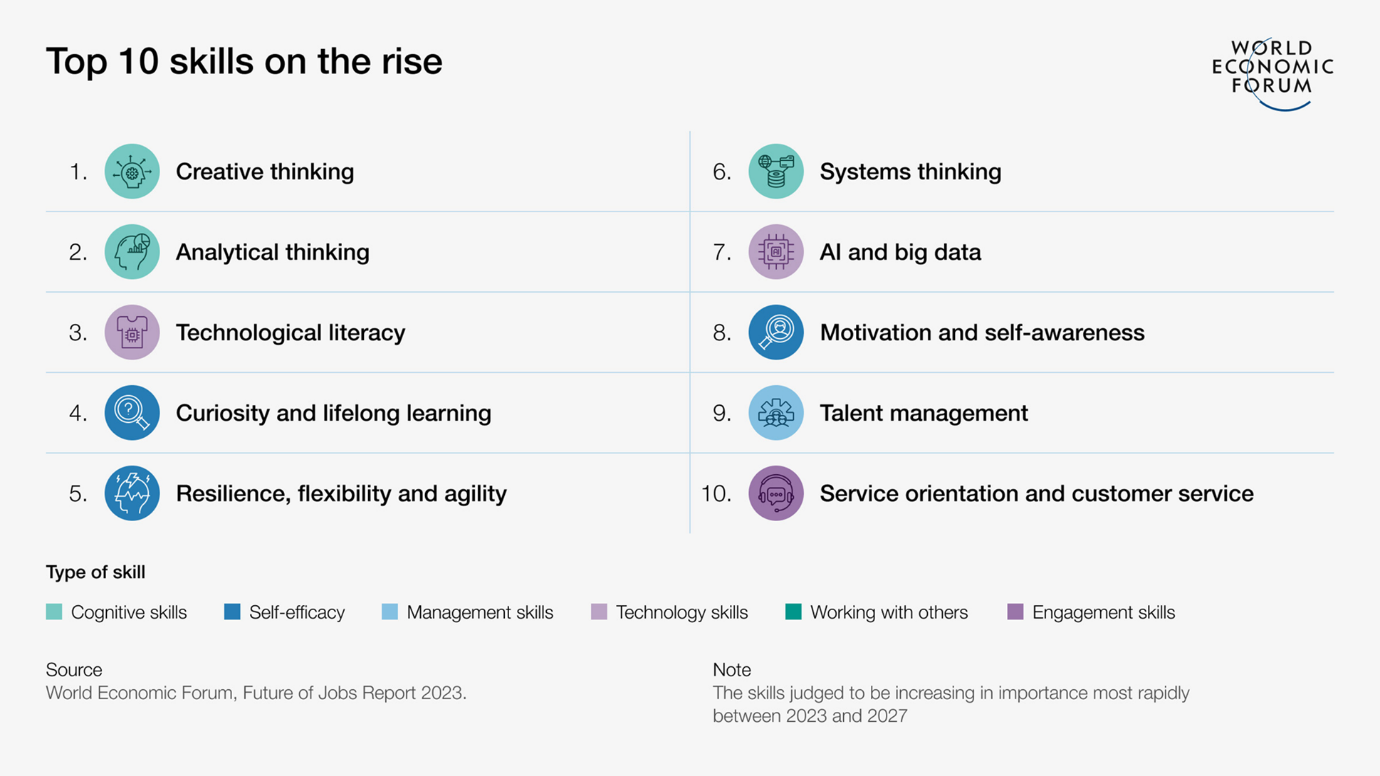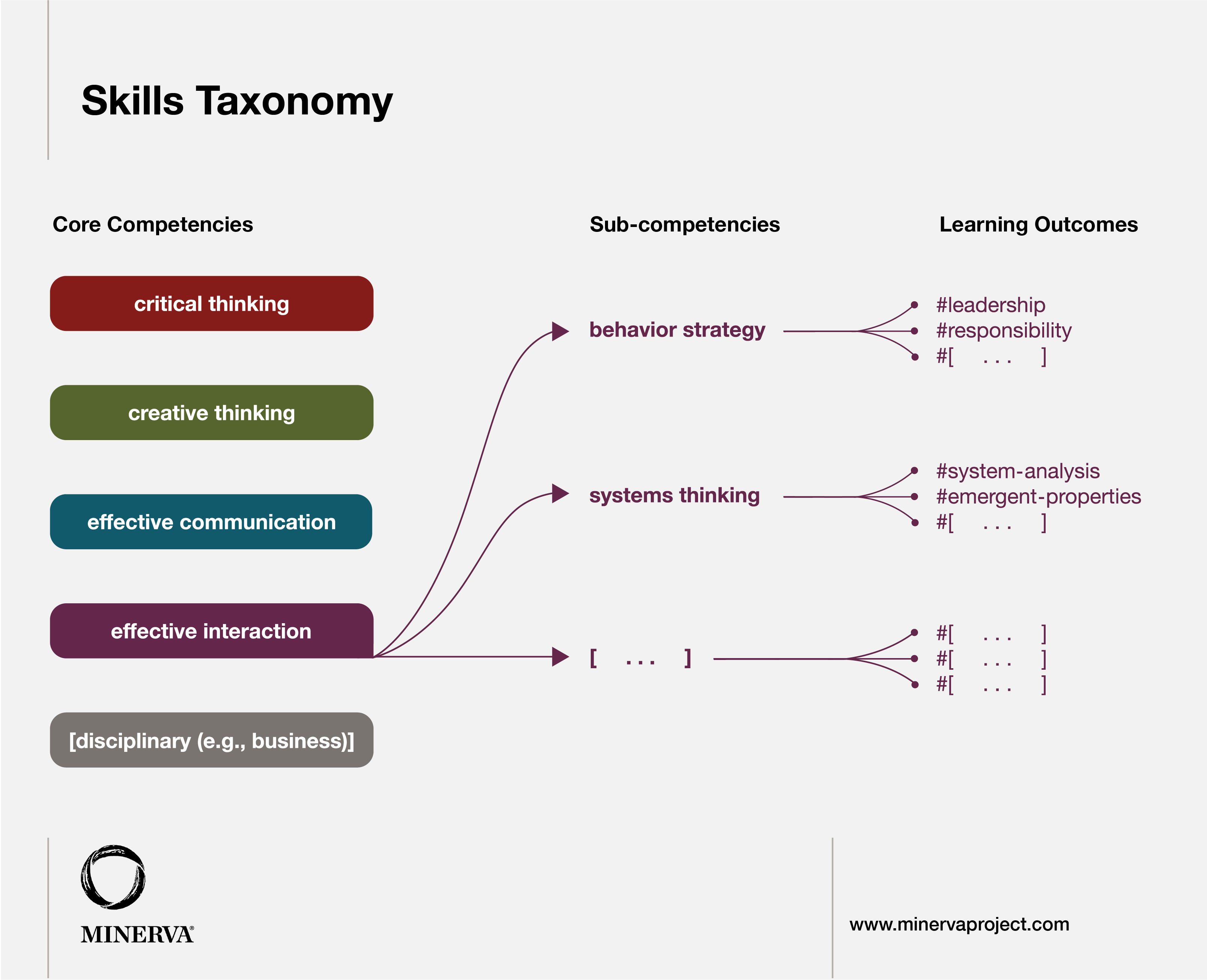Our world behaves as a complex system, reflecting our deep environmental interdependence and economic interconnectedness. This is why complex systems, such as our climate, are intrinsically difficult to model because of multiple interactions across numerous elements within any system. The combination of vast datasets and artificial intelligence will eventually help us to solve complex problems related to the energy transition, climate adaption or nature restoration. But for now, the onus is on all of us to exercise systems thinking to the best of our abilities. This is why the World Economic Forum’s 2023 Jobs Report highlighted systems thinking in the list of 10 skills predicted to grow in importance for workers over the next five years.
According to our Global Issues Survey 2023, 80% of the youth respondents believe that climate change and biodiversity loss will be either very important or absolutely essential in their work or career in the next five to 10 years. So how can we accelerate the introduction of systems thinking and begin preparing a new generation of systems leaders?
The answer may lie with a pioneering course on Systems Leadership that imparts practical knowledge about complex systems and develops critical skills to solve adaptive problems. Minerva Project and Villars Institute have been working together since 2022 on an innovative curriculum on systems leadership that is based on intergenerational collaboration and interdisciplinary learning.
Shifting the paradigm
In contrast to traditional methods of imparting information, the course encourages learners of all ages to think creatively and collaboratively, through active learning and intergenerational exchange. In practice, this means going beyond the conventional approach of disseminating knowledge, to learn concepts and skills which can be applied across disciplines. The program applies frameworks and toolkits from systems thinking and problem solving to help participants understand - and apply - effective systems change and holistic leadership methods.
As economic-social systems are driven primarily by human behaviour, students are also introduced to the psychological, emotional, and situational factors that increase complexity but also drive positive behavioural changes. The Villars Institute has identified five traits to look for in a systems leader which serve as the foundation for the curriculum designed by the Minerva Project.
Breadth of experience, depth of understanding
The program is focused on preparing future leaders with the skills and concepts they need to address complex systemic challenges. The virtual, synchronous, and flipped nature of the course allows participants to join from across the globe, and spend valuable class time interacting, discussing, and building on each others' diverse perspectives and lived experiences.
To maximize impact, the program is grounded in the learning principles of: Attention, Association, Application, Interaction, and Feedback. These principles are designed to encourage both theoretical exchange and practical application, building topic complexity and active experience over time. Through teamwork and social interplay, learners’ individual motivation and accountability are enhanced, without the need for high-stakes testing or exams.
The program is aimed specifically at preparing tomorrow's leaders with the skills and concepts they need to address complex systemic challenges.
A good example of this would be Right Problem, where learners explore the nature of complex adaptive problems, and the steps to begin really understanding and approaching them through application in real world scenarios (such as sustainably feeding the world or equitably allocating water).
Uniquely intergenerational, the course fosters interaction across not only cultures but across age groups, building a shared understanding of a path forward.
An intergenerational pathway to Systems Change
The course has been completed by 152 participants, with 41 taking part in the pilot launch and 111 enrolling in the first of three distinct modules. Most learners (76%) were recruited from the Villars Fellowship program, a select cohort of young changemakers between the ages of 13-19 nominated by talent partners of the Villars Institute.
To test the course’s intergenerational appeal, nearly a quarter (24%) were also adult learners seeking to increase their understanding of systems leadership, and eager to apply to fields of education, teaching and other relevant vocations.
Testimonials from this year’s participants reflect how the innovative, intergenerational and collaborative nature of the course have opened up new perspectives for learners:
“I really enjoyed the collaboration with both international students as well as the intergenerational collaboration. This really made the course more interesting because there were so many perspectives that were explained, and I was able to deepen my thinking and understanding.”
“I loved the practicality and those light switch moments when the true complexity of certain aspects made me really think and dive deeper into the problem.”
“I really enjoyed the intergenerational aspect and how the more experienced members of the class were able to share their knowledge and the younger members were able to bring new perspectives to the discussion.”
Get Involved
This unique program brings together a scientifically-researched pedagogy with the mission of accelerating the transition to a Net Zero and Nature Positive economy, through systems leadership and intergenerational and interdisciplinary collaboration.
Looking ahead, our shared ambition is to bring the program to wider audiences across diverse contexts and explore integrating a certified train-the-teacher or train-the-trainer model to deepen the application while expanding the reach across schools, universities, companies and organizations worldwide. The long-term vision is to equip a cadre of systems leaders with the shared mindsets, vocabulary and set of tools to build better systems for our increasingly complex world, and instil the confidence, clarity, and agency needed in generations to come to accelerate the transition towards a net-zero, nature positive economy. If your institution shares these goals then we invite you to get involved by contacting us at info@villarsinstitute.org.





